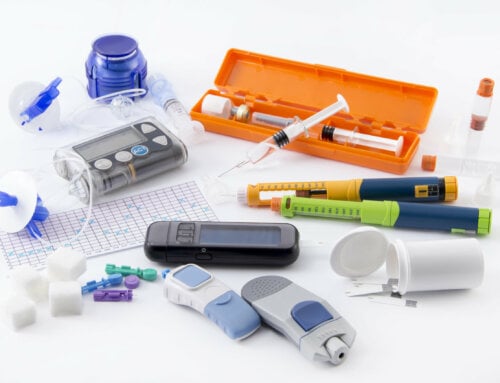It is the first 3 months of the new year and many of my patients are already disappointed, frustrated and concerned about their weight. Although they have made multiple lifestyle changes, they have not been able to lose any weight, which was their New Year’s resolution.
I try to counsel them with solid information to keep them motivated even when they have given up. I would like to share some of this information with you.
- Are you really exercising? Many patients are really motivated come the first of the year and join Silver Sneaker classes, the “Y” or a commercial gym. They stay focused for approximately four weeks and often return to their old habits. The biggest excuses I hear are lack of time, lack of funds, nerve or neuropathy pain and muscle/joint/foot problems. The time factor never works since you can break up your activity into 5-10 minute intervals and still gain many benefits. The money factor should not be a problem either. Walking in the park, a big box store or mall is sufficient exercise. The joint/muscle/foot pain can usually be alleviated when exercising in the pool. Even chair exercises and stretching can be helpful. This should help you eliminate the biggest excuses. If you are truly unable to do any form of exercise on your own, request physical therapy from your health provider. After achieving the basics, you should consider investing in a pedometer or other fitness tracking device that includes a heart rate monitor and calorie counter. There are so many products to choose from including smart-phone apps and wrist bands which will hold you more accountable and give you improved results. Include weight bearing exercises: walking, jogging, jumping rope, trampoline jumping or aerobic classes, since gravity makes the body work harder and burn more calories. Swimming, pool aerobics/exercises and bike riding are excellent forms of exercise but may not burn as many calories (at low levels) since you lose the stress of gravity on your muscles. Remember to add some form of resistance training (including weight lifting) since it builds muscle and increases your metabolic rate. Stick with exercise since the diabetes motto should be “Exercise, exercise and more exercise if you can” since it sensitizes your insulin. It should come in a written prescription just like your medication. Remember, even if you exercise at full force an hour a day, sitting the rest of the day does not allow you to burn calories so get up and move whenever you can.
- Sleep quality and quantity – Over and over again, the research states “that poor sleep or lack of sleep results in stagnant weight loss or frank weight gain along with elevated blood sugars”. Staying up later may add up to 500 calories due to more snacking time. One week of that behavior equals another pound gained. Poor sleep quality causes cortisol hormone levels to soar, which increases body fat (especially around the middle). High cortisol levels also increase blood sugars.
- The no stress button – As much as we would like to keep stress at bay, most of us still have a difficult time lowering our stress response. Even after the holidays, we still have stress to deal with. The answer is how we deal with it (or don’t). Our hormones, including adrenalin, increase during stress (especially low level chronic stress, which is the worst kind), and cause weight gain. Many people also tend to eat mindlessly when under stress. They make poor choices: sweets, salt or comfort foods including choices like macaroni and cheese or rich desserts. Calories add up quickly when eating mindlessly. I teach my patients to try other methods including mediation, doing crafts, listening to music, reading, praying, joining a support group, exercising or seeking professional counseling to avoid the binge stress eating cycle.
- Not eating on time or on a schedule – I still have patients who insist on eating heavy in the evening and waking up with no appetite. They miss breakfast and lunch and then gorge on dinner. The result is that they cannot control their blood sugars and the weight keeps piling on. They insist they earned a huge meal since they did not eat all day. When you skip meals, the body’s metabolism shuts down, lowers calorie burning and puts you in a starvation mode. The best solution is eating small meals every 4-5 hours with small 100 calorie snacks and a bedtime snack (if not on basal/bolus insulin).
- Giving up too easily – Many patients do not see the results they want immediately and give up entirely by returning to old habits. Talk to a loved one or professional to get you back into your new lifestyle, not diet.
- Medical issues – I see patients that do not realize that certain medications can raise blood sugars and/or their weight. People taking steroids (prednisone/cortisone) for lung conditions (asthma, COPD or allergies) can gain weight and notice huge swings in their blood sugars. Patients taking shots – including steroids for arthritic pain or orthopedic problems – raise sugars and can increase weight. Some psychiatric drugs, beta blockers for heart conditions, insulin or sulfonylurea’s for diabetes can also cause weight gain. Talk to your physician about GLP1 injections, as they may help control diabetes as well as promote weight loss by slowing gastric emptying and increasing satiation. Choices include Byetta, Bydeuron, Trulicity and Victoza. Your health care provider can decide if you are a candidate for these medications.
- Plateau Time – Many people start out strong with weight loss especially when they make dramatic changes but after awhile most reach a plateau. It happens often but you need to stick with it and get to that next or last 5 pounds. You may need to tweak things slightly to get moving again but do not give up. It could simply be water weight or muscle mass, but remain focused on your plan.
- Consider a trainer – During a critical time of a weight plateau stepping up exercise with a trainer may really make a difference. You decide if it will work for you.
- Experiment with “slimmed down recipes” – Look on-line at diabetic friendly websites for modified “less calorie” or “light” recipes with healthy ingredients – less salt and sugars. Almost any recipe can be transformed into a lower calorie and healthier ingredient version. You will be helping your entire family.
- Stop thinking about weight in a negative way – Try to lose the “all or nothing” attitude. Many patients get into a negative thought process and slip back to their old ways, although it may be unhealthy for them. Weight loss is not always consistent. Some people do better by weighing themselves daily in the morning to help prevent weight from creeping up. Decide what works best for you but try to eliminate the negativity.
These are just a few reasons why you may not be losing. Stay focused and motivated in your New Year’s resolution – especially if it concerns improved blood sugar control through weight loss. Look for more tips in the near future. Good Luck!
NOTE: Consult your Doctor first to make sure my recommendations fit your special health needs.







Leave A Comment